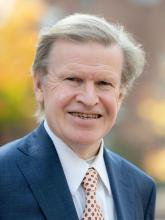You are here
Football lessons for Europe’s economy
Aug 16,2014 - Last updated at Aug 16,2014
Though a solution to the euro crisis continues to elude European leaders, the foundations of one are not difficult to discern. In fact, Europe’s recent football experience — specifically, in the EURO 2012 tournament and this year’s World Cup — provides insight into how to revive Europe’s economy and address its deeper identity problem.
On June 28, 2012, as European political leaders met in Brussels, amid growing uncertainty about the eurozone’s survival, to negotiate the design of the European Stability Mechanism (ESM), Germany was playing Italy in a semi-final match in Warsaw. Two goals by Mario Balotelli cinched the win for Italy — and propelled Balotelli to superstar status.
At such a politically sensitive moment, a German victory could have sparked a bitter nationalist reaction in southern Europe. Instead, encouraged by his country’s victory, Italy’s new technocratic prime minister, Mario Monti, in alliance with Spanish Prime Minister Mariano Rajoy, pressed German Chancellor Angela Merkel for easier access to ESM support — and scored another major victory for his country.
For a brief moment, Monti joined Balotelli in becoming a national hero. The Italian media eagerly linked the two “Super Marios,” with photomontages showing the prime minister with the football player’s idiosyncratic mohawk hairstyle. The message from both the football field and the negotiating room was that there was a quick and easy route to victory, complex issues could be solved by a brilliant argument, and individual superstars were the key to success.
The World Cup championship in Brazil was another matter altogether. This time, the Germans won, with a spectacular display of power in a 7-1 semi-final erasure of the host country, Brazil, and a 1-0 triumph over Argentina in the final.
The disappointed supporters of the defeated teams viewed the games in terms of personalities. Brazil and Argentina had long histories of superstars: Pelé, Garrincha, Ronaldo, Alfredo di Stéfano, and Diego Maradona. In the semi-final, Brazil appeared to be paralysed without its hero, Neymar, who wore the same number as Pelé but had been badly injured in the previous match. In the final, Argentineans believed that the world’s best player, Lionel Messi, would surely carry the national team to victory.
Of course, the German team had plenty of good players. But, instead of behaving like superstars, they worked together, passing consistently and creating opportunities for one another to score.
Germany’s World Cup performance was a brilliant demonstration of the importance of deep, long-term reforms. In the early 2000s, German football was boring. Germany’s heroes were from the distant past.
It was easy to draw an analogy between ineffective and mundane performance in the stadium and the general state of the country. At the time, Germany was regarded as the sick man of Europe, with a proclivity for highly protected labour markets. Something needed to be shaken up.
In 2004, the German national team’s new trainer, Jürgen Klinsmann, did just that. Beyond more aggressive tactics, his radical new strategy entailed a fundamental revolution in sports education and training, with programmes that identified and propelled promising young players through the teams in Germany’s domestic league. In other words, it was a long-term strategy.
Fortunately, the team’s management understood this and persevered, despite the lack of a short-term payoff. Klinsmann’s assistant trainer, Joachim Löw, succeeded him, and became the architect of the 2014 championship bid.
Germany’s football revolution was mirrored in the economy. Beginning in 2003, Chancellor Gerhard Schröder, a Social Democrat, launched a series of reforms aimed at increasing labour-market flexibility and, more generally, laying the foundations for long-term prosperity.
But this future-oriented approach had serious short-term political consequences, with Schröder losing the next election and his party’s popularity diminishing considerably. Neither Schröder nor Klinsmann attained superstar status, but they carried out the reforms that mattered.
There are other lessons that Germans and Europeans can derive from these experiences. One concerns the integration of foreigners.
All of the major European teams, including Germany’s, depend on players of foreign descent. In the Brazil game, Miroslav Klose, whose family hails from Poland, became the highest-scoring player in World Cup history.
The half-Ghanaian Jérôme Boateng was a pillar of the German defence. And Mesut Özil, who is of Turkish descent, executed many beautiful sweeping passes. Even Balotelli, Italy’s EURO 2012 superstar, is the son of Ghanaian immigrants.
But the most important lesson is that there are no quick fixes or magic bullets. An exceptional performance by a superstar football player can be beautiful — even inspiring — just as rescue mechanisms and stimulus packages can rally markets and raise hopes. But their impact is fleeting.
Consistent, reliable, long-term success requires forward-thinking measures that focus on building strong fundamentals. Europe needs such an approach, one that includes microeconomic adjustments and programmes that encourage mobility, flexibility, and innovation. If other Europeans emulated the German model, Europe would begin to look — and play — like a championship team.
The writer is professor of history at Princeton University and a senior fellow at the Centre for International Governance Innovation. ©Project Syndicate, 2014. www.project-syndicate.org













